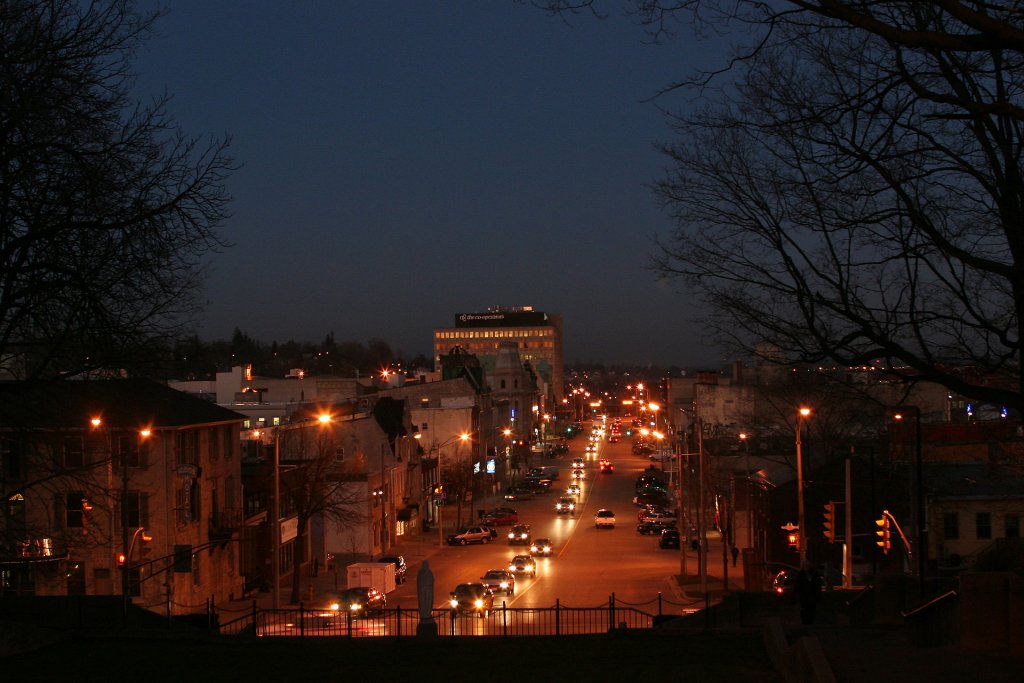Canada’s $300 Million Smart City Challenge Finalists Unveiled
One of the largest smart city challenges ever undertaken has announced its finalists.
The government of Canada has unveiled the 20 finalists for their $300 million Smart Cities Challenge, a community-level competition that looks to foster data-driven and connected technology solutions. Every single one of the finalists will receive $250,000 to further develop their proposals and make sure the design, planning, privacy, data protection and project management components of their plans align.
“I am proud to see all the effort that communities have put into engaging with residents and in developing their Smart Cities Challenge proposals,” said Amarjeet Sohi, Minister of Infrastructure and Communities. “I challenged community leaders to be bold and think outside-the-box, and I am pleased to see that they answered the call through the innovative ideas they submitted. I am thrilled at the meaningful, lasting and positive outcomes that this Challenge has already created for communities thus far, and look forward to seeing the final proposals.”
The challenge is split into three tiers. One winning city will take home $50 million to implement a smart city solution; two medium-sized cities (less than 500,000 population) will take home $10 million; and $5 million will go to a city with under 30,000 residents. The finalists are listed in their respective categories below, with a short description taken from the government’s site detailing what their smart city solution will be.
$50 million
- Edmonton, Alberta.
“The City of Edmonton is facilitating the creation of a Healthy City Ecosystem (a partnership of government, industry, academia and residents) to work collaboratively to provide integrated, community-based health support.”
- Montreal, Quebec.
“The city of Montréal and 36 project owners and partners are committed to take action on systemic issues of urban life including mobility and access to food so that all Montrealers may enjoy a pleasant quality of life where their basic needs are met.”

The city of Montreal.
- Quebec City, Quebec.
“The community of Quebec is committed to a societal project that focuses on sustainable health and citizens’ well-being. This societal project will bring together the collective intelligence and the deployment of digital tools in support of decision-making and follow-ups.”
- Waterloo Region, Ontario.
“We have selected Healthy Children and Youth as our smart cities challenge area. Based on data and community consultation, we have identified six priority areas of focus that will address through our smart cities initiative: early child development; mental health; bullying; literacy rates; high school graduation rates; and youth sense of belonging. We will develop connected community spaces, broader education platforms and technology-based programming that supports equity, mentorship, volunteering, mental health, food security and nutrition and STEAM learning.”
- Vancouver and Surrey, British Columbia.
“Surrey and Vancouver will implement Canada’s first two collision-free multi-modal transportation corridors, taking an ambitious step toward improving our residents’ quality of life by removing transportation safety risk, reducing greenhouse gas emissions, and increasing transportation efficiency.”
$10 Million
- Airdrie and Area, Alberta.
“We will become Canada’s Healthiest Community–Own Our Own Health. We will increase healthy life expectancy is increased by three-plus years over five years.“
- Communities of Nunavut, Nunavut.
“The Community, Connectivity, and Digital Access for Suicide Prevention in Nunavut is a collaborative effort to implement protective and preventive measures to reduce the risk of suicide in Nunavut through a decentralized and community-based digital health and wellness platform.”
- Côte Saint-Luc, Quebec.
“More than 25 per cent of all seniors in Canada live alone where there is often no one to watch over them to intervene when a problem arises. Our city offers many senior programs, but we feel it crucial to find technological ways to connect with isolated seniors. We seek to implement a comprehensive yet cost-effective solution that will provide peace of mind, security, and support for those who need it. It must be easy to use and affordable.”
- Greater Victoria, British Columbia.
“We will collaboratively create a multimodal transportation network that is convenient, green and affordable, which will boost South Islanders’ mobility wellbeing score by at least 20 per cent.”
- Guelph and Wellington County, Ontario.
“Guelph/Wellington will become Canada’s first technology-enabled Circular Food Economy, reimagining an inclusive food-secure ecosystem that increases access to affordable, nutritious food by 50 per cent, where ‘waste’ becomes a resource, 50 new circular businesses and collaborations are created, and circular economic revenues are increased by 50 per cent: 50 x 50 x 50 by 2025.”

Downtown Guelph, Ontario.
- Parkland, Brazeau, Lac Ste Anne and Yellowhead Counties, Alberta.
“The applicants seek to increase the prosperity and safety of rural communities–farm and rural residential alike–through the full use of integrated data and connected technologies.”
- Richmond, British Columbia.
“Richmond has invested in stable, reliable infrastructure and services as the basis for the implementation of the Smart Cities Challenge. Protect our island city; Integrate citizen, infrastructure and emergency data and communication platforms; Bridge language barriers; and Create scalable systems that both enhance daily life and improve emergency response rates and recovery times.”
- Saint Mary’s First Nation and Fredericton, New-Brunswick.
“My city does not recognize me or connect me to what matters most; Fredericton will collaborate with First Nations to create an accessible, welcoming, supportive city for youth, newcomers, and an aging population, empowering everyone with a Personalized Inclusion Plan that connects people to create an exceptional quality of life.”
- Saskatoon, Saskatchewan.
“The City of Saskatoon has initiated a partnership with key institutions all committed to working together in finding proactive, preventative solutions to youth incarceration. Our Smart Cities Challenge will build on this collaborative work and use innovative technology to strengthen and connect the supports for youth to grow in a positive learning cycle rather than find themselves pulled into a cycle of crime.”
- The Pas, Opaskwayak Cree Nation, and Kelsey, Manitoba.
“Our community will utilize LED Smart Farm technology to support local nutritious food growth and promote food security, create a smartphone distribution system and integrate wearable technology to achieve a 40 per cent reduction in the number of imported vegetables and a 20 per cent reduction in community diabetes rates by 2023.”
$5 million
- Biigtigong Nishnaabeg First Nation, Ontario.
“By means of active, cross-generational, technology-empowered, real-world participation in the intergenerational transfer of traditional Nishnaabe knowledge through the medium of our language, and the bilingual delivery of modern K-12 STEM knowledge, our community will transform our youth into better-educated, more employable, better-grounded, and more holistically Nishaabe people.”
- Bridgewater, Nova Scotia.
“Our community will lift 20 per cent of its residents out of energy poverty by 2028.”

Bridgewater, Nova Scotia.
- Cree Nation of Eastmain, Quebec.
“Our community will develop an affordable Net Zero Energy Housing Program, offering culturally appropriate designs, using smart technologies, innovative building techniques and alternative energy systems in order to address the housing shortage crisis, the poor-quality and costly construction of houses in Eastmain and Indigenous communities across Canada.“
- Mohawk Council of Akwesasne, Quebec.
“Decrease the rate of new cases of diabetes per year in Akwesasne to the Canadian average (0.5 per cent; 5.9/1,000) by improving community wellness using traditional approaches encompassing holistic Indigenous practices, improved access to community services and health diagnostics.”
- Yellowknife, Northwest Territories.
“Our proposed concept is to make the lamppost a beacon for sustainability. The sustainability referenced in this challenge statement ranges from ecological to financial to social sustainability, which we will realize by incorporating a variety of technological innovations into the lampposts around our city to improve quality of life for our residents and visitors in several ways. The first step will be creating a mesh network among our lampposts that allow them to communicate with each other and with a central location.”
–
As is evident, the solutions many of the cities and communities have come up with are incredibly diverse, ranging from a connected mesh network of smart lampposts to the lowering of city-wide crime rates.
More than 200 communities from around Canada responded to the challenge. Oddly enough, Toronto was not listed as a finalist—perhaps because they have enough smart city pilots already, including ones by Sidewalk Labs and UPPlift. The winners will be announced in spring 2019.

